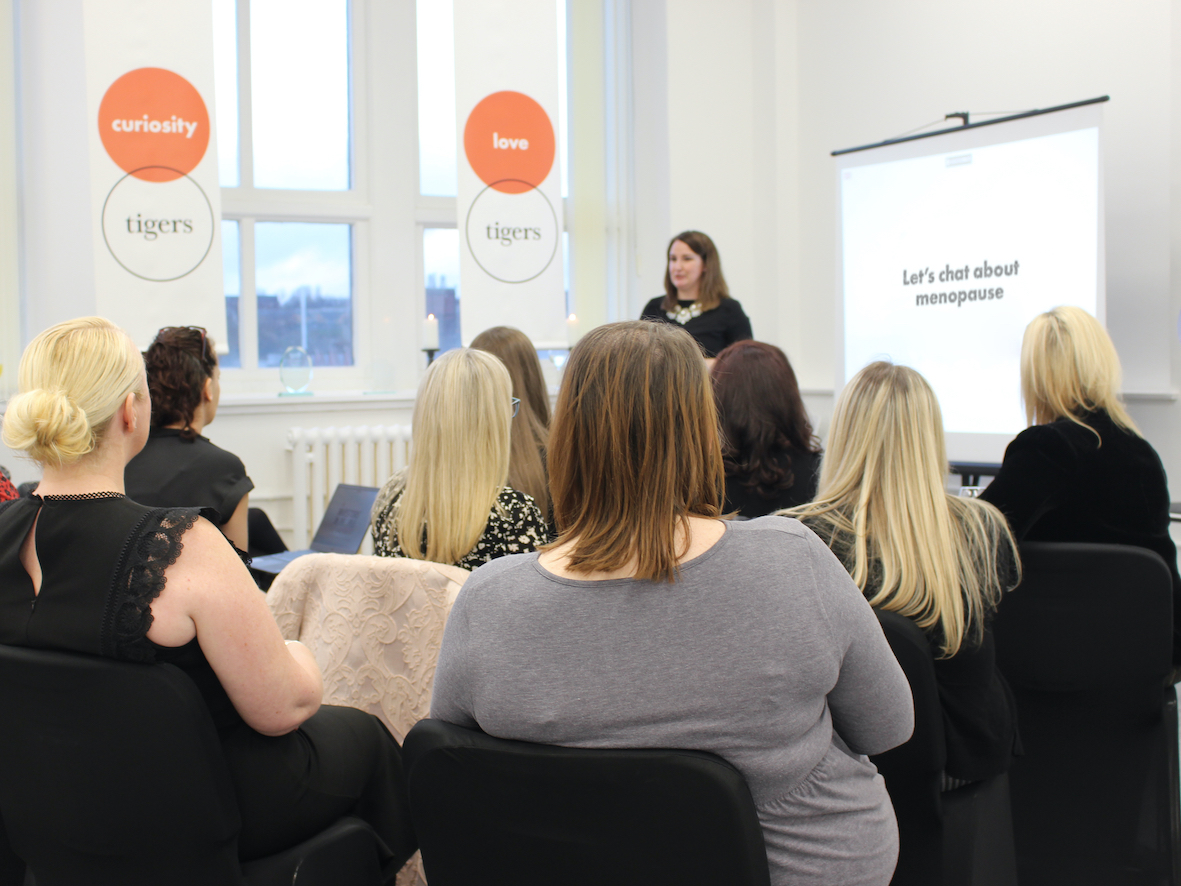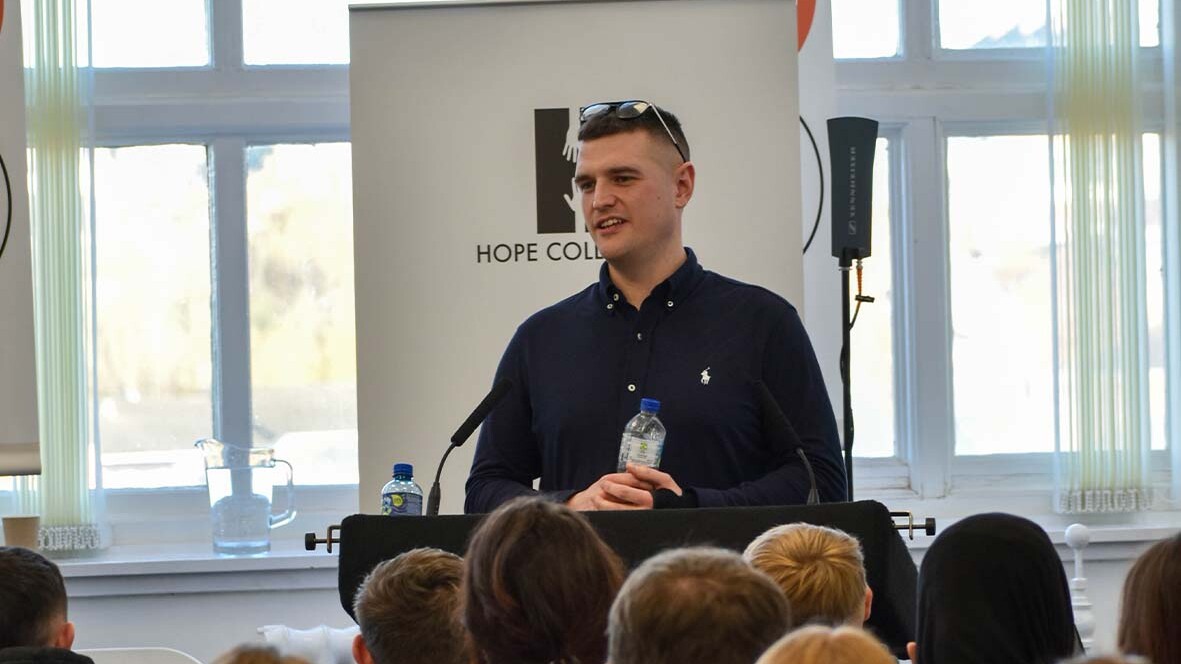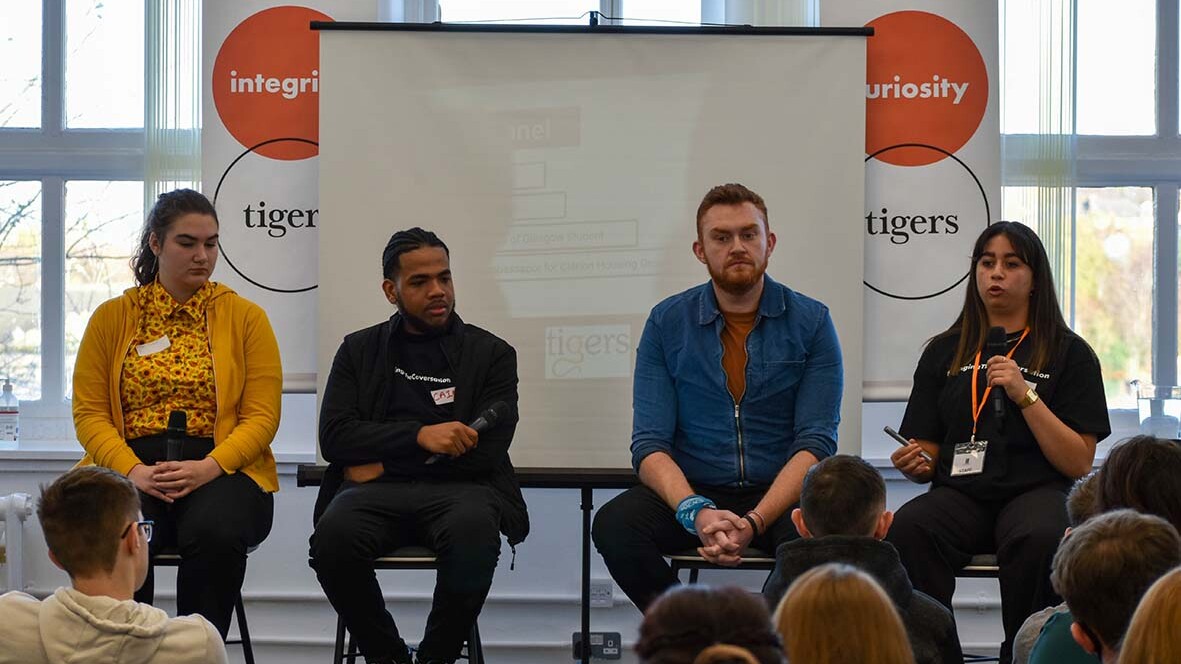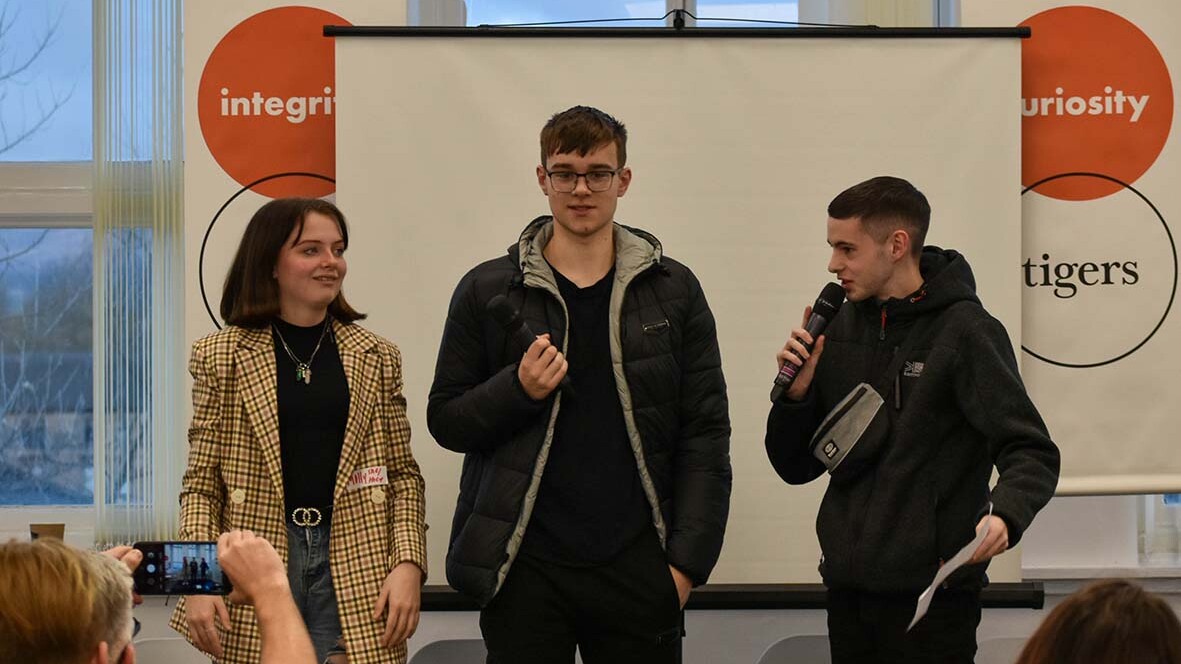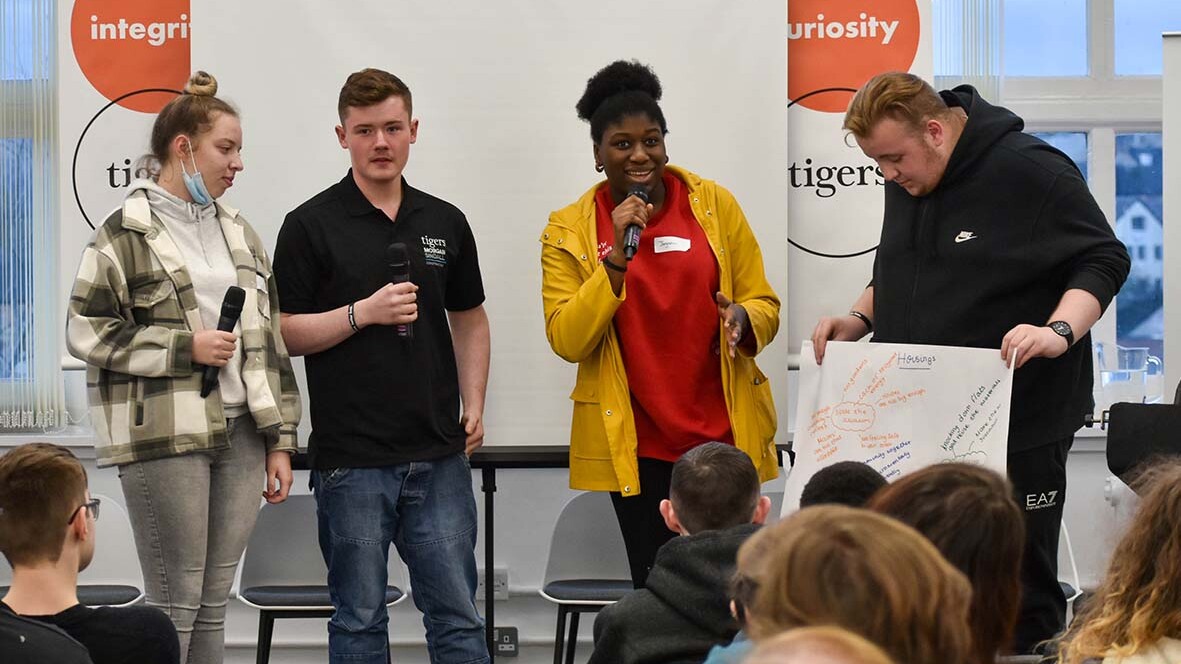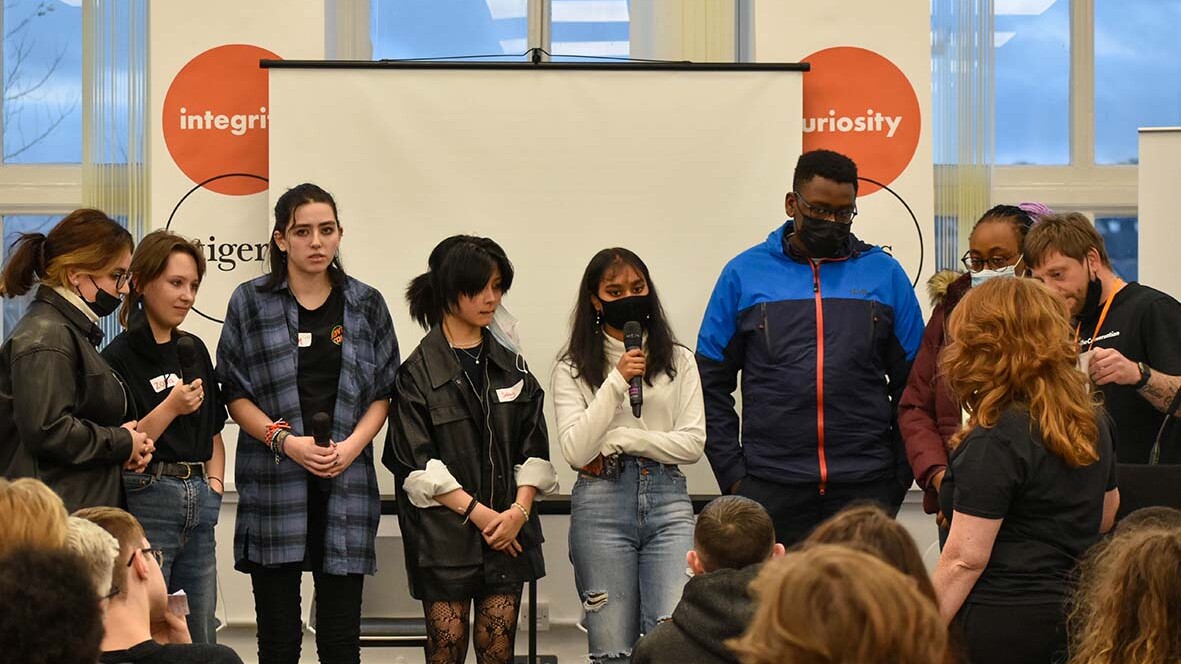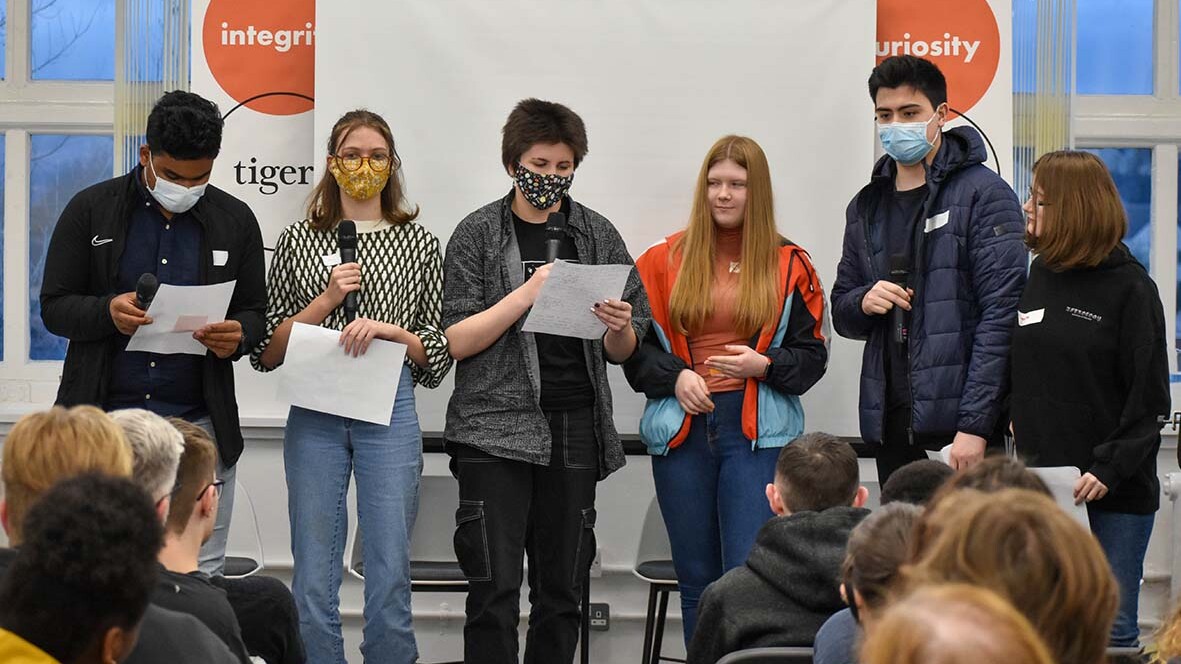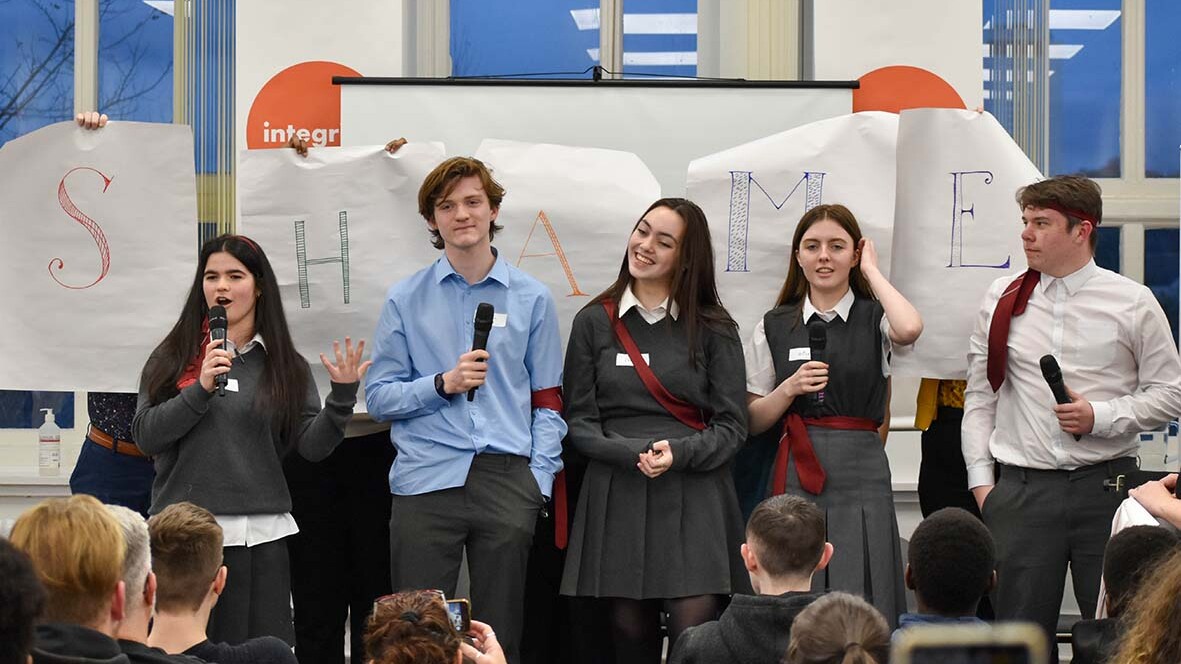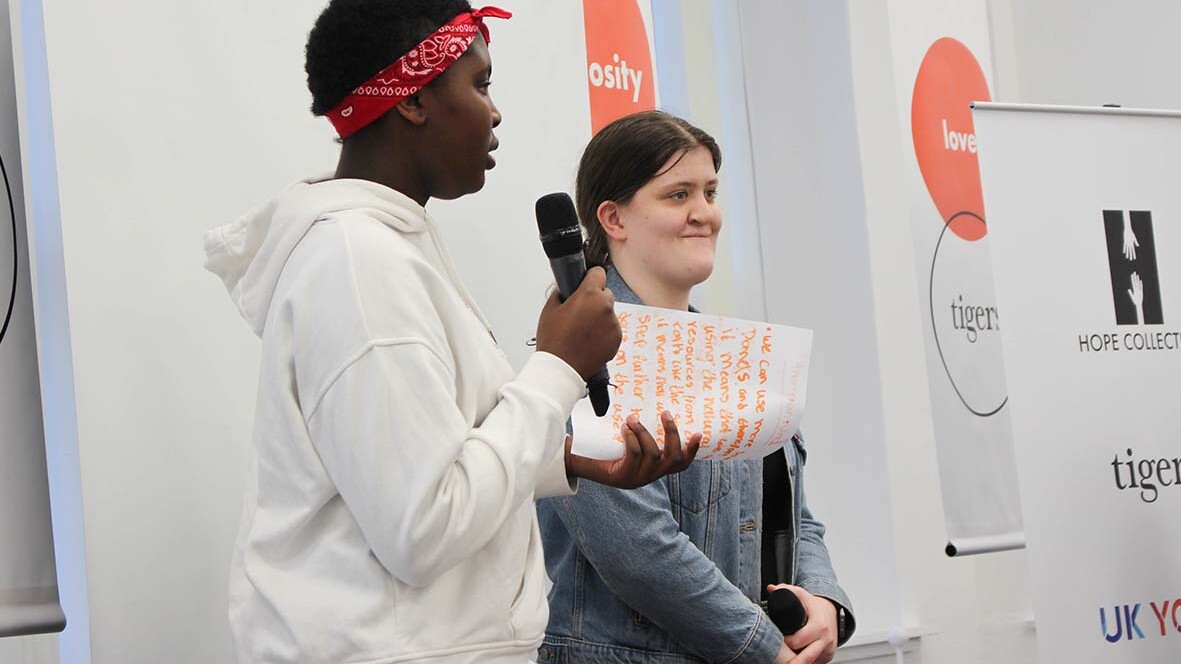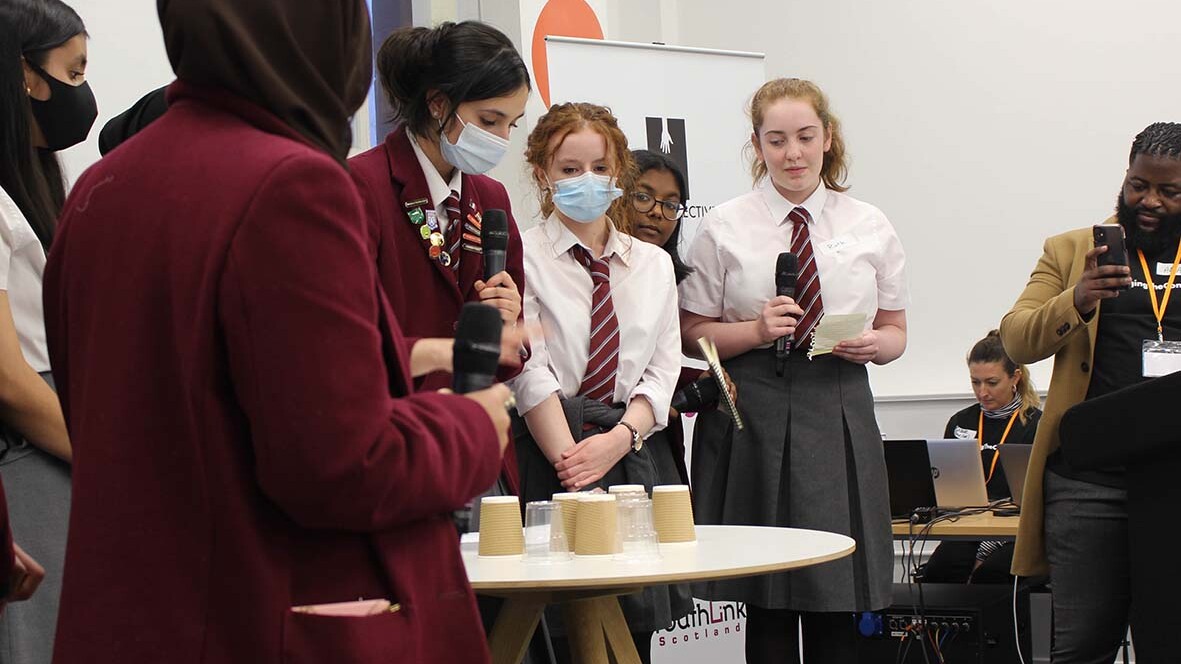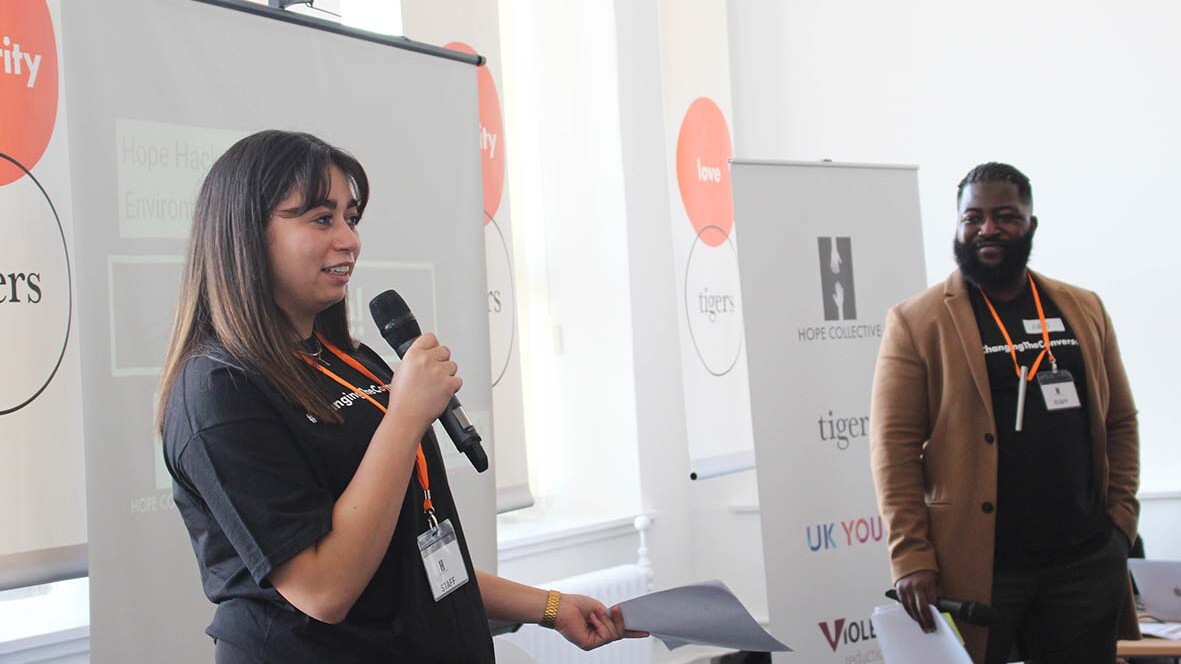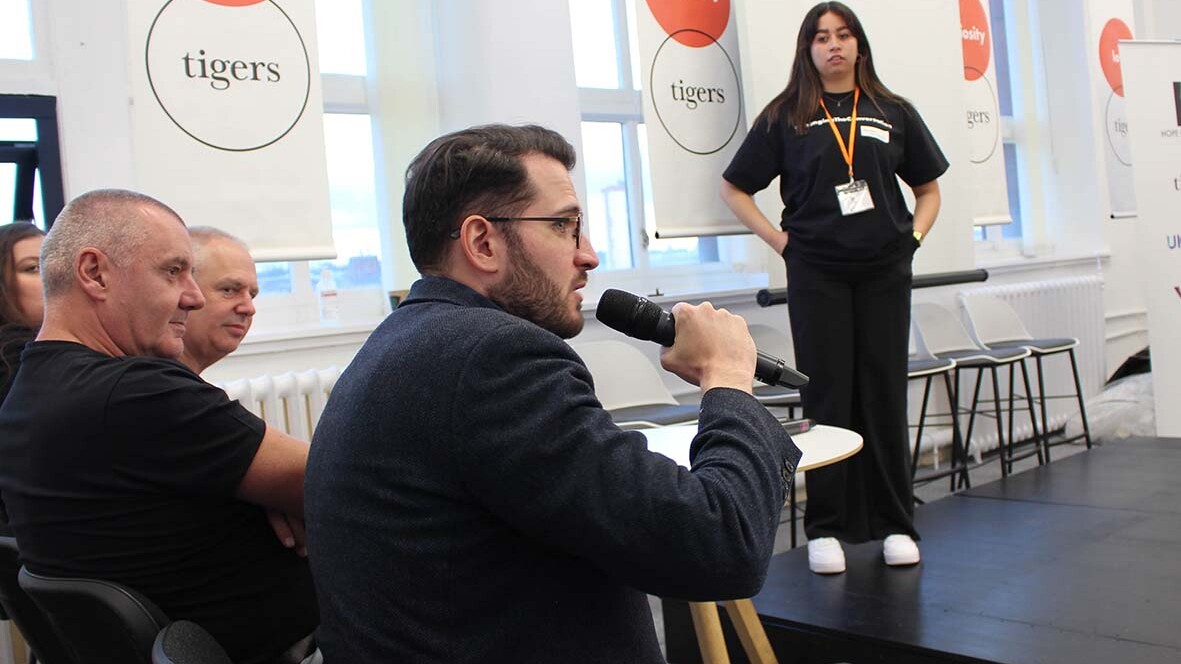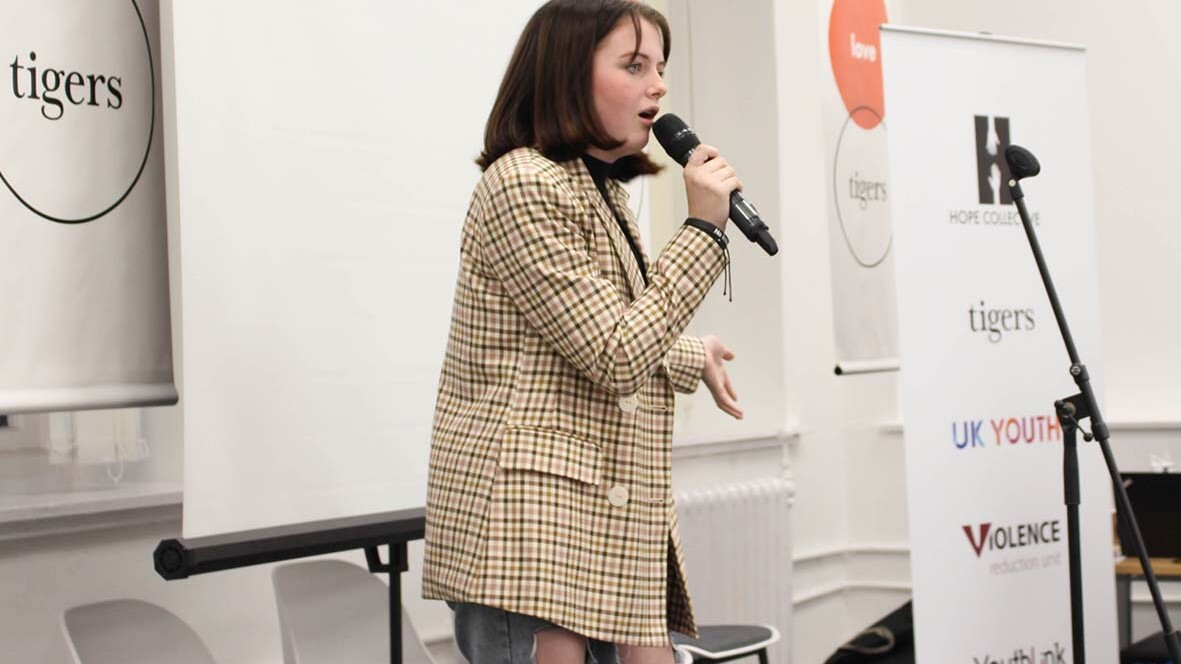YoungPeople
Construct Your Future – A New Schools Initiative
tigers and The Prince’s Trust are proud to announce an exciting partnership, between two values based and purpose driven organisations, that will benefit young people from over 20 secondary schools across the West of Scotland.
The programme, ’Construct Your Future’, has been designed to provide young people with an introduction to the exciting world of Construction, a chance to explore what careers are available to them and an opportunity to gain valuable industry qualifications.
This programme is not just about learning practical skills, it’s about discovering new passions, expressing oneself, and building self-esteem and confidence.
Group Commercial Director, Gerry Hamill expressed delight sharing, “At tigers we believe that significant learning and development only takes place in the presence of secure, positive relationships. Alongside our friends at The Princes Trust we aim to create an environment that will see young people thrive. We are thrilled to see this partnership embrace our model of Relationship Led Practice.”
On behalf of The Princes Trust, Head of Delivery Partnerships & Volunteering, Helena Inverarity said… ‘We are delighted to be working with tigers in schools across the Glasgow City Region to deliver this programme. tigers deliver sector leading skills development in a positive and safe environment for young people to set goals and recognise their potential. Working together with tigers supports our mission to build young people’s confidence and skills, and prepare them for their future’
Construction Operations Manager, Steven Manclark, also confirmed on behalf of tigers that;
“We’re absolutely delighted to be working in partnership with the Prince’s Trust, knowing that we are able to offer a significant number of young people from schools across the West an opportunity to come in and experience the construction sector. We aim to support the young people gain positive experiences and outcomes.”
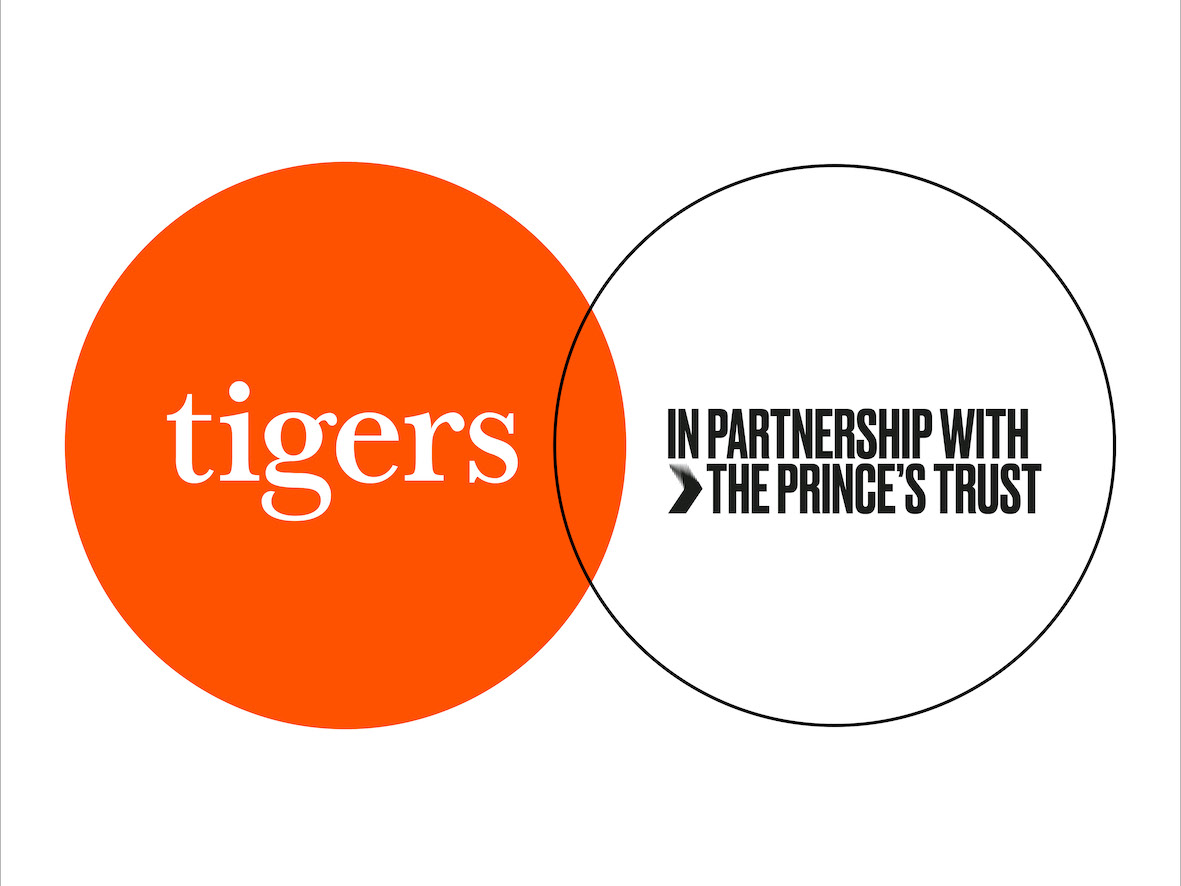
For further information or to find out how we can build a new partnership together contact office@tigersltd.co.uk
Inspiring Potential since 2001.
Apprenticeships
My apprenticeship journey
When I first started my apprenticeship, my weekly salary was around £92, this was working 5 days a week, 8am – 4.30pm. I had moved from an office based role where I was smartly dressed, always warm and had coffee on tap! It felt like I had made a huge mistake at that point, little was I to know an apprenticeship was about to change my life.
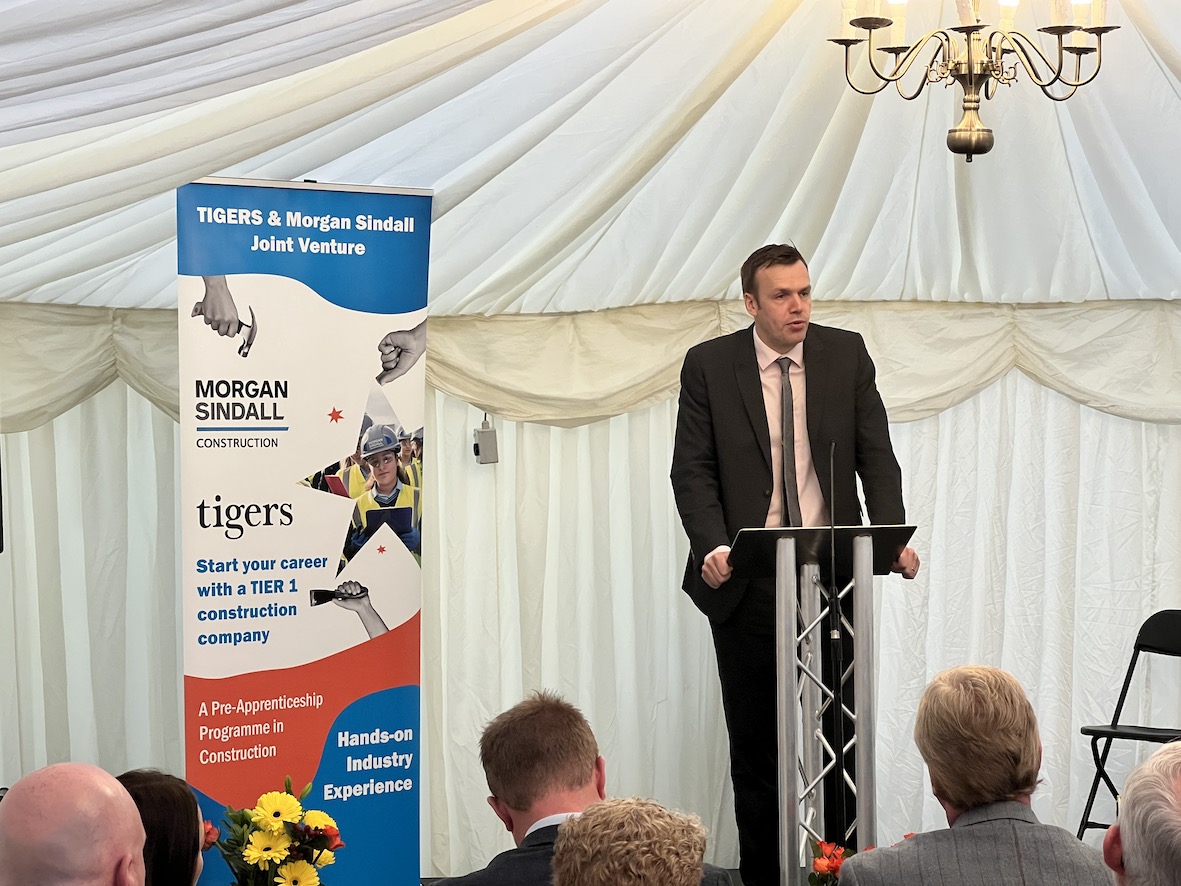
After completing 4 years as a painting and decorating apprentice, I travelled the world, lectured in a college and had a go at working self-employed. I loved my job and it always gave me satisfaction, one thing that was very obvious though was the need for more tradespeople on site. There was always a constant shortage, alongside this I had been working with young people who were desperate to do well for themselves however found their personal circumstances creating barriers they were unable to remove. That’s when I began working for tigers as a trainer/assessor, I worked directly alongside the apprentices and had a unique opportunity to make a real difference in their lives. 5 years on and I find myself with the absolute privilege of being able to being part of helping to create a brand new joint venture alongside Morgan Sindall paving the way for 30 young people to enter into an apprenticeship. When I stood up to welcome everyone to the launch event it was great to finally be announcing the start of the joint venture, but the thing that filled me with so much pride and hope was seeing the amount of people there willing to be involved in helping these young people achieve their goals.
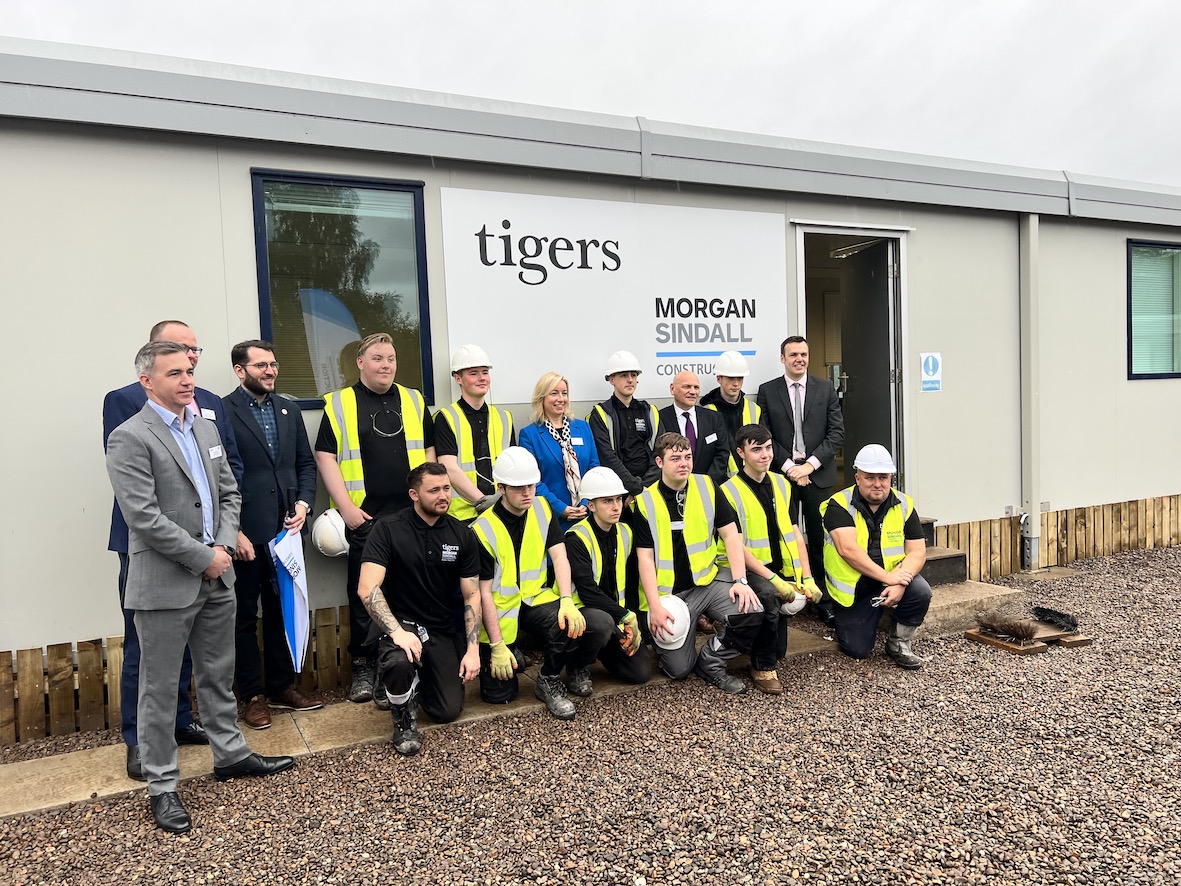
What we need to do
If you are reading this, then like me you have a passion for the construction industry. Apprenticeships are the bread and butter of this sector and are key to addressing the skills shortages. Construction News recently produced an article advising the construction industry would need almost 217,000 new construction workers by 2025. No employer, college or training provider can do that alone, if there has ever been a time for the industry to come together, it is now. It is our obligation to work together to inspire and support young people to enter the industry whilst ensuring we have a sector that can continue to offer fantastic opportunity and continue to operate at the heart of the UK economy.
Inspiring Potential since 2001.
World Menopause Day
Today on World Menopause Day one of our male colleagues sat down to discuss the introduction of our Menopause Policy with our female project lead here at Tigers Group.
You can see the questions borne out of curiosity, one of Tigers key values, from Gerry Hamill, our Group Commercial Director and subsequent responses from Laura Devennie our Group Director of People and Culture below.

Gerry: When did we introduce our Menopause Policy here at Tigers?
Laura: The policy was officially put in place in March 2022 after a long period of background work and research.
Gerry: As a business perhaps you can share what prompted tigers to think about putting a menopause policy in place?
Laura: Initially we came to recognise that a large proportion of our colleagues were women and not only that but women of all ages. At Tigers we talk about brain development and the science of connection, including attachment theory, and we had become increasingly aware through conversation of the range of symptoms attached to menopause. For many this often appears a taboo subject but we immediately felt we had to address the subject internally for our colleagues.
Often people feel they are alone in dealing with symptoms, or may not recognise that feelings, physical and emotional, they are experiencing are not unique to them but that their colleagues are also on that journey through the menopause.
Gerry: Who was involved in researching the policy internally and what processes did you follow to assist with drafting the policy?
Laura: Our first action was to reach out to our team, our entire team across the business, there was no gender disqualification in our request to join us in our early conversations.
We were delighted by the enthusiasm the invitation inspired from across the group. Colleagues representative of all age groups came forward to engage in our conversation including team members at varying stages of the menopause all of whom were curious to learn more about the subject.
Coming together to talk was the next step on the policy journey when people through storytelling shared their own life experiences of menopause or simply being a woman with colleagues. After which we created an action plan where a raft of people accepted individual tasks and responsibilities allocated and designed to give us all a greater understanding of the menopause and its symptoms.
We sought to find external resources too which would add to our knowledge and allow to attach some of the science to the learning. This helped each of us understand where we where individually in life.
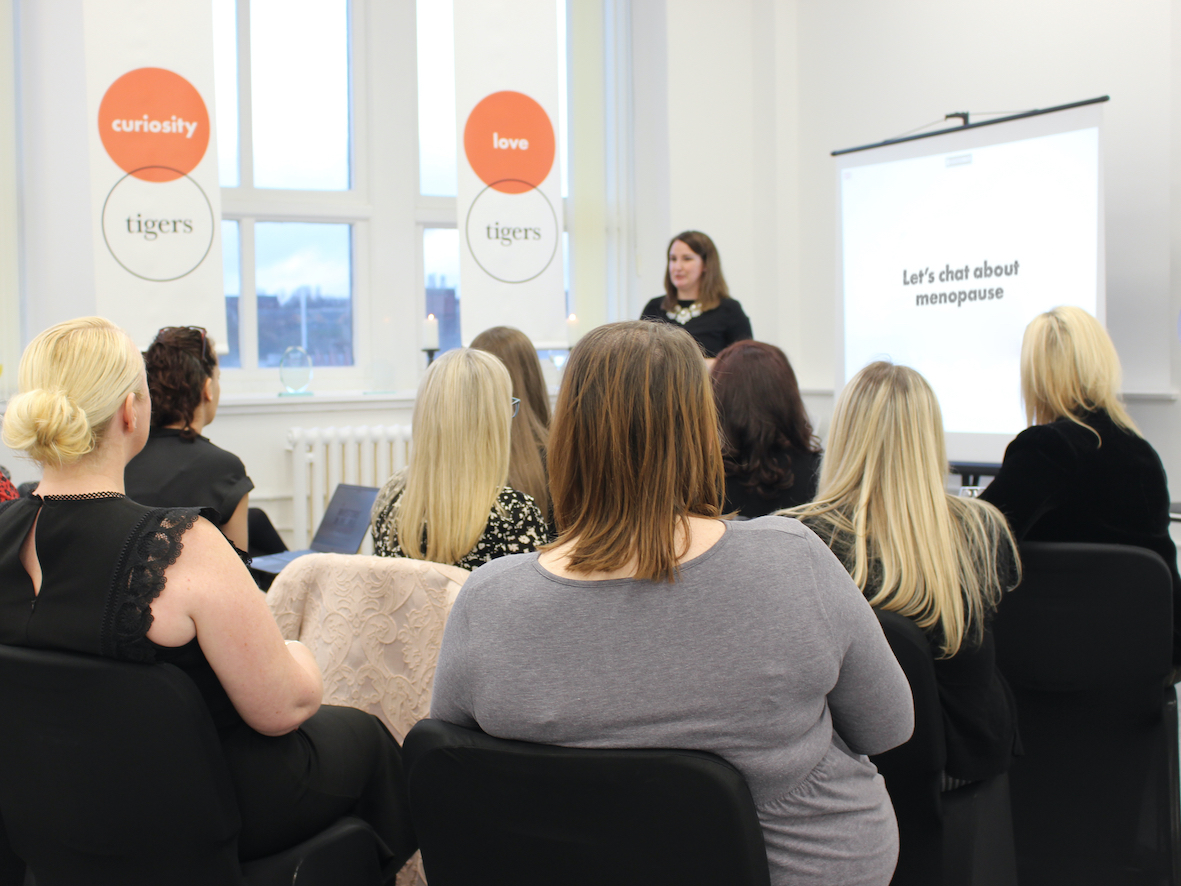
Gerry: What key or additional learning, if any, did yourself and colleagues achieve along the way to assist putting the policy in place?
Laura: The biggest thing for me and I’m sure I speak for many of the team when I say that I learned there are different stages of menopause. For example, perimenopause which actually comes in two stages (early and late) and identified the symptoms attached to each. On a personal level this led me to understand that I was experiencing early perimenopause symptoms something which I had previously thought of as being years ahead of me.
Up to that point I was probably guilty of being quite flippant about symptoms jokingly referring to them as me just being hormonal or it being that time of the month but I learned that my brain and body were changing through hormonal imbalances. I found that fascinating when looking it at from a brain development perspective as we do through our internal Daring Ventures programme. I could then name the changes and the feelings around them.
Symptoms such as cognitive disturbances (concentration, brain fog) all of which I had aligned to stress previously I learned it was related to the changes that were taking place in my body.
Along with that came the realisation that this experience is years in the making and not something which appears and leaves you in a short space of time.
It did in actual fact lead us to think of our male colleagues and what process they go through and we have now formed a working group to consider those changes which society also flippantly refers to as mid-life crisis, etc.
Gerry: Do you feel, from a people and culture perspective, this has brought daily benefits to the workplace for Tigers?
Laura: I think the first thing is it brings a willing to engage in conversation and it removes shame from the discussion. It has created a shared language, a sense of belonging with others, and also creates a support network simply through awareness.
We accept that we still have more to do in terms of education and awareness across all genders of the group because each of them will have people in their lives who may be experiencing menopause. Arming people with that knowledge can only be a positive.
Gerry: Having reached the point of having the policy in place what would you offer as advice to others thinking of doing the same for the first time?
Laura: To go for it, to implement and not be fearful. To seek external support if needed, work collaboratively with people within your business in developing your policy.
It would have been much easier for us simply to present a policy as a finished article but there is a feeling, an experience shared, behind the policy when people realise they were part of the team that created the policy.
There is no downside to gaining the knowledge, sharing it and implementing practices borne out of that same learning.
Thank you Laura for your willing to share both personally and professionally, it has been in this short time an education for me to listen to your comments.
Glasgow Hackathon 2022
We're proud to host the Glasgow Hackathon again!
Tigers, in collaboration with the VRU and The Hope Collective, are delighted to be hosting this year’s Glasgow Hackathon on Friday 11th November in our new premises at CityPark.
What is the Hackathon?
The Hope Hacks aim to provide young people with the opportunity to come together for a day of exploring and developing new and innovative solutions to the challenges we currently face in our society today. The Hope Hacks provide an excellent platform for young people to raise their voices and share not only their concerns about the societal challenges we face, but also to offer hope in the ways in which we tackle poverty and inequality as a nation.
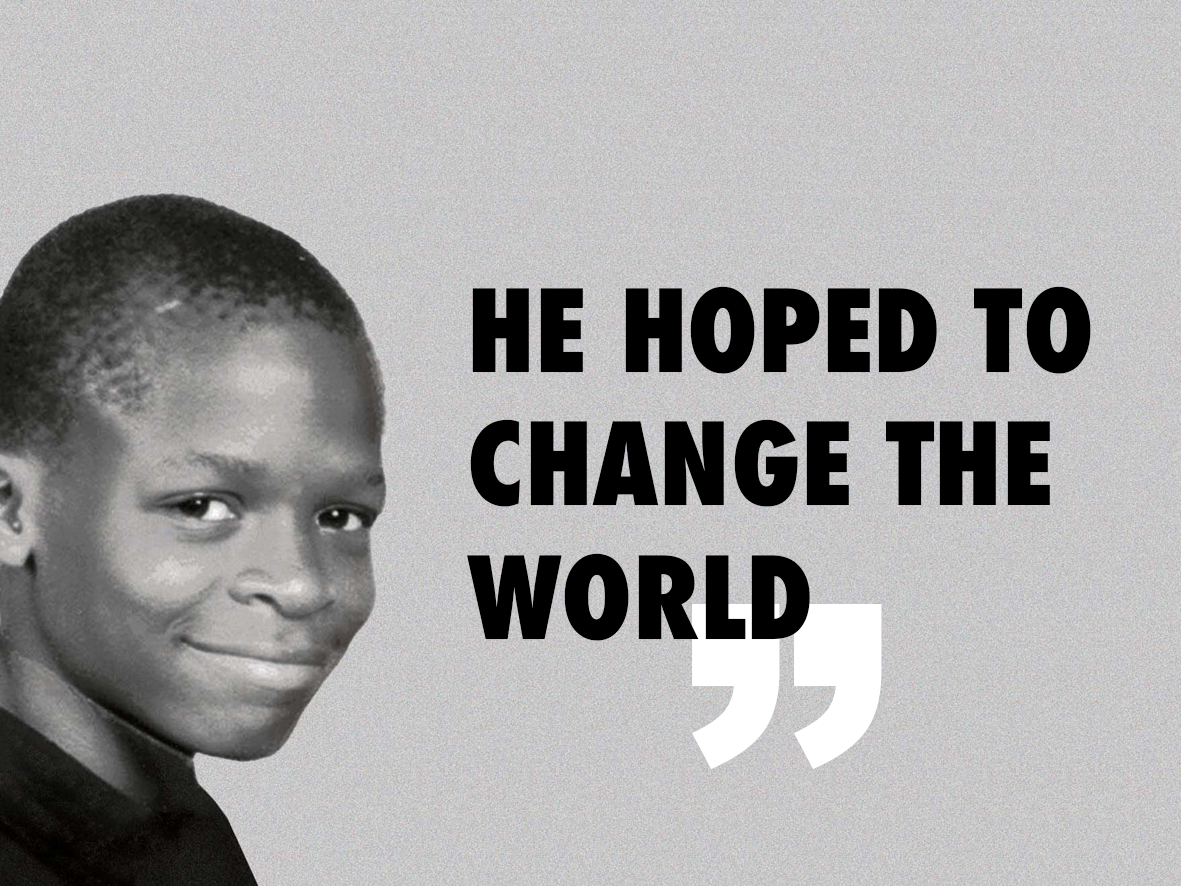
What is the history of the Hackathon?
The origins of the Hope Hack start with the tragic story of Damilola Taylor who was murdered, aged 10, in London. Damilola dreamed of being a doctor and of being able to save the world. In his memory, the Damilola Taylor Trust was formed, and in 2020 the Day of Hope was launched, marking 20 years since Damilola’s death.
The Day of Hope was developed and supported by a ‘Hope Collective’, a joint enterprise which brought together leading organisations with shared values from across the United Kingdom, all with a vision to create a powerful voice for change on behalf of young people.
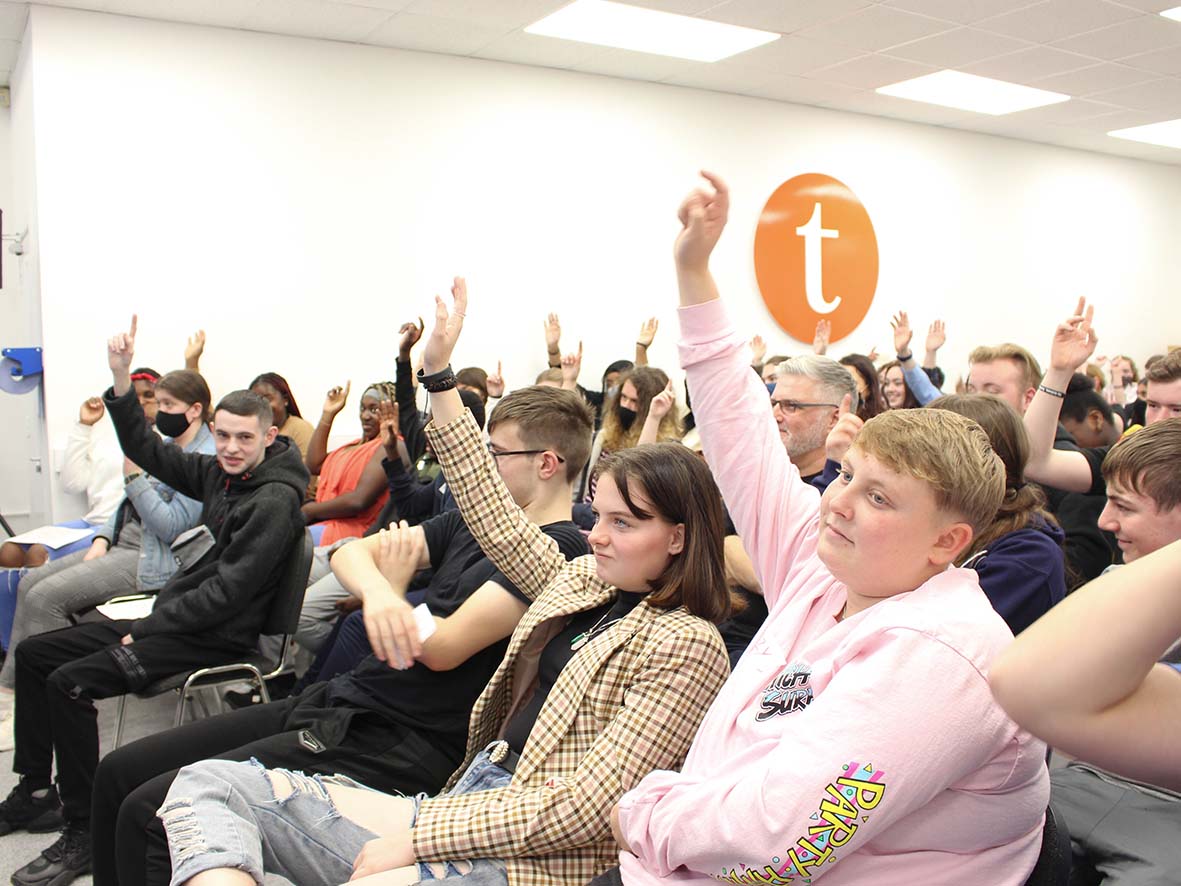
What will happen at the Glasgow Hackathon?
The Glasgow Hackathon aims to gather young people’s views on poverty and inequality within their communities with the intention of providing young people with a platform to share their solutions to these challenges and present these to their peers and the wider group.
The ideas and solutions from the hacks will be incorporated as part of a report along with the survey data to create the biggest needs assessment into what young people think a fairer society looks like. The Youth Management Group (YMG) are a group of 15-20 young people aged between 16-25 years, who steer the overall activity of the Hope Collective.
The findings of the Glasgow Hack will be included within the Reimagined Report which will be circulated in advance of the 2024 Westminster Election.
Tigers firmly believes in the vision of The Hope Collective and in helping to provide a platform where our young people have the opportunity to come together as part of this collective and offer their insights, solutions and hope for their futures.
If you are aged 16-24 and are interested in participating in our event or would like to find our further information please contact us at events@tigersltd.co.uk
Young People Have The Answers To Our Future
Tigers host Glasgow Hackathon!
We were excited and privileged to partner with The Hope Collective, UK Youth, Youth Link Scotland and the Scottish Violence Reduction Unit in hosting a Hackathon in Glasgow. The event one of a series five regional Hacks” brought together a diverse group of around 60 young people from across Scotland to discuss tough societal challenges including housing, environment and employment.
The Campaign
The Hope Collective campaign honours the memory of Damilola Taylor, a young man who, aged 10, tragically lost his life to violence in London in 2000. Shortly before his death, Damilola wrote of his hope to change the world. This series of events attempt to honour that dream by inviting young people to lead us in #ChangingTheConversation. The event dedicates the campaign to young people and their aspirational stories of ambition and hope.
We believe young people have the infinite potential to challenge the future and create a better society. This was a great event to be involved in and brought power to young people voices.
Hackathon Day
Our agenda was busy, and the excitement on the room was tangible. We started right on track with our inspirational speaker, Graeme Armstrong, author of the award-winning Scots Book of the year 2021 “The young Team”. Graeme set the tone for the day, sharing his story of hope and honesty which has led him to where he is today and to writing his bestselling book. It was a true message of hope.
After our keynote speaker, we move to our discussions with our panellists: Cain Green, Denisha Killoh, Imogen Maskell and John Loughton, where they discussed our themes of: environment, housing & employment. It was a grounded debated touching subject from inclusion & LGBTQ+, disability in sustainability, societal status and environment.
“'Our communities have been living sustainably for years, the environment is a middle-class conversation. We need to keep raising our voice, understand the system to get ahead.”
John Loughton

Hearing Young People’s Ideas!
Our young people moved to their workshops with their facilitators to work on their ideas on how they want to create change. As we brought the day to a close, our young people shared their hopes for the future with the listeners: Niven Rennie, Paul Sweeney MSP and Gary Trowsdale. This is what they had to say:
Group 1: A rap feedbacking their thoughts on Housing and equality. Housing should be affordable and accessible.
Group 2: A metaphor of knocking down the cups to explain the issues they see in our current class system and how they want to see society change to give everyone a voice.
Group 3: Focusing on environmentally friendly housing with space to grow our own food.
Group 4: Housing in locations that accommodate the environment. Sustainable housing that doesn’t take away from the environment but instead works around it.
Group 5: Those working in housing need to be trauma informed.
Group 6: The education system has failed. Young people should be doing projects and writing essays on current social issues.
groups 7/8: The motto to follow: Our future. Our voice. Our world.
Lastly, we had Molly from Manchester, singing her own song, Syndicate.
Thank you to all our young people, partners & The Hope Collective, for an aspirational day. Hope is the start of change. Let’s keep changing the conversation!
If you are looking to empower young people, and support their development, get in touch to start a partnership!
